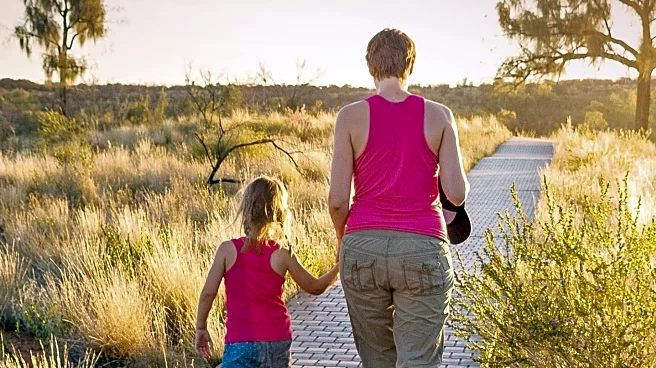What's Happening?
Queensland Health has confirmed a fourth case of measles linked to a concert by American rapper Jelly Roll at the Brisbane Entertainment Centre. The latest case was infectious for about a week, visiting
various locations around Logan, including Mustang Brothers Football Club and Logan Hospital's emergency department. This follows three earlier cases from the same event, prompting Queensland Health to issue a public health alert. The alert advises attendees to monitor for symptoms such as fever, lethargy, runny nose, cough, red eyes, and a rash starting on the face. The government offers a free two-dose vaccine program for infants and catch-up vaccinations for adults under 20 and humanitarian entrants. Most Australians are vaccinated, with a 93.8% uptake in children over five.
Why It's Important?
The emergence of new measles cases highlights the ongoing risk for unvaccinated individuals and those born after 1965. Measles can lead to severe illness, although complications are rare. The situation underscores the importance of vaccination programs and public health alerts in preventing outbreaks. The high vaccination rate in Australia helps mitigate widespread transmission, but the presence of unvaccinated individuals remains a concern. Public health officials are likely to continue monitoring and responding to potential exposure sites to prevent further spread.
What's Next?
Queensland Health will likely continue to track and manage the measles cluster, issuing further alerts if necessary. Individuals who attended the concert are advised to remain vigilant for symptoms and seek testing if they suspect infection. The government may reinforce vaccination campaigns to ensure high coverage and prevent future outbreaks. Public health responses may include increased awareness efforts and potential adjustments to vaccination strategies.
Beyond the Headlines
The measles cluster raises questions about the effectiveness of current vaccination strategies and public health communication. It may prompt discussions on improving vaccine uptake among at-risk groups and enhancing public awareness of measles symptoms and prevention. The incident also highlights the role of large public gatherings in disease transmission, potentially influencing future event management and health safety protocols.











